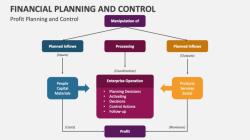What are the most stressful jobs in finance?
Finance is a demanding field, and many roles come with their own set of stressors. Here are some of the most stressful jobs in finance:
Investment Banking: Investment bankers often work long hours, especially during high-pressure deal-making situations like mergers and acquisitions. Tight deadlines, demanding clients, and the need for precision contribute to the stress of this role.
Trading: Traders, especially those in high-frequency trading or proprietary trading firms, experience intense pressure to make split-second decisions that can result in significant gains or losses. Market volatility adds to the stress.
Hedge Fund Manager: Managing a hedge fund involves making complex investment decisions that can impact both the manager's financial success and the fund's reputation. The pressure to outperform the market is constant.
Quantitative Analyst (Quant): Quants design and implement sophisticated mathematical models for trading and risk management. The complexity of the work and the constant need for innovation can lead to high stress levels.
Financial Advisor/Planner: Financial advisors are responsible for managing clients' financial well-being and making recommendations for their financial future. Market volatility and the weight of clients' financial security can be stressful.
Compliance Officer: Compliance officers ensure that financial institutions adhere to regulations and laws. The responsibility to prevent regulatory violations and the potential legal consequences can be stressful.
Risk Manager: Risk managers assess and manage risks within financial institutions. They must anticipate potential problems and develop strategies to mitigate them, which can be stressful, especially during times of economic uncertainty.
Private Equity Professional: Private equity professionals work on high-stakes deals, often involving large sums of money. The pressure to make successful investments and generate returns for investors can be immense.
Actuary: Actuaries are responsible for assessing financial risks, particularly in the insurance industry. The precision required in their work and the impact of their decisions on an insurer's financial health can lead to stress.
Corporate Finance Manager: Corporate finance managers oversee an organization's financial planning and analysis, including budgeting and forecasting. The responsibility for a company's financial health can be demanding, especially in times of economic downturns.
Credit Analyst: Credit analysts evaluate the creditworthiness of individuals and businesses. The need to make accurate assessments and the potential for significant financial losses due to credit defaults can be stressful.
Financial Analyst: Financial analysts are responsible for researching and analyzing financial data to provide investment recommendations or support business decisions. The pressure to make accurate predictions in a dynamic market can be stressful.
It's important to note that stress levels can vary depending on factors such as the specific company, industry, and individual personality. While these jobs can be stressful, they also offer opportunities for financial success and career advancement. Effective stress management techniques, work-life balance, and a supportive work environment can help professionals in these roles cope with the demands of their jobs.











